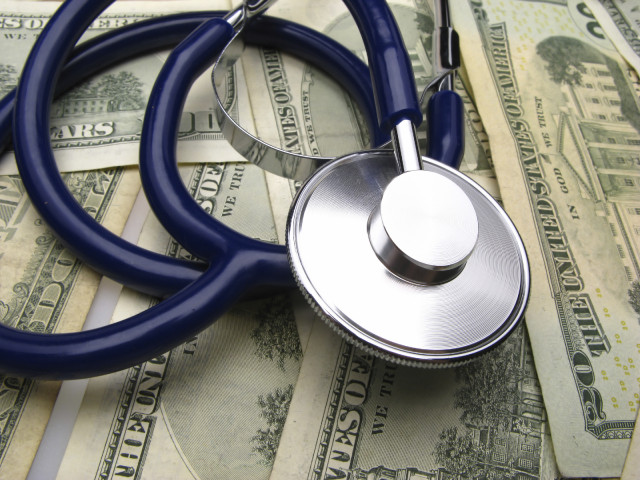
The Impact of COVID-19 on Future Medical Professional Liability Claims
It’s hard to fully comprehend all of the impacts the pandemic will ultimately have on the U.S. health care system. Pandemic-related delays in treatment coupled with delays in filing, processing and adjudicating medical professional liability (MPL) claims creates significant unknowns. As the pandemic recedes, and society re-emerges, systems, insurers and medical professionals are unsure what they may face next with respect to MPL claims.
The COVID-19 pandemic has put the healthcare system — medical professionals, hospitals, medical centers and nursing homes — under tremendous strain.
Although many health care providers have gone through what may be the most difficult year of their careers, they’ve not stopped treating and healing patients. The system has done its part despite lockdowns, waves of variants and perpetually at-capacity intensive care units.
“We know that during the pandemic there were many great acts of heroism as health care professionals made the ultimate sacrifice of putting their own lives on the line to save others in an extremely difficult and unique set of circumstances, the likes of which we have never seen before,” said Tim Mosler, Principal and Consulting Actuary at Pinnacle Actuarial Resources, Inc.
Of course, the pandemic has created great uncertainty for every corner of society. But what can medical professionals expect when life finally returns to normal? What liabilities will insurers face when patient visits resume, delayed claims are filed and the courts work through a backlog of lawsuits?
Mosler believes COVID-19’s impact on MPL claims can be grouped into three categories — ones he classifies as “good, bad and ugly.”
The Good
With respect to the good, Mosler believes there are several potentialities that may limit claims, and encourage the MPL industry once the pandemic ebbs.
First, some jurisdictions moved to shield health care providers from pandemicassociated claims. Executive branches in several states are signing orders limiting liability of medical professionals as they treat patients in the middle of a pandemic. In other jurisdictions, legislatures are enacting laws that give health care providers immunity from claims made during the pandemic.
Mosler also believes that the heroism displayed by medical professionals during COVID-19 may generate a wave of support and goodwill. The empathy and understanding that society and courts feel for providers could act as a bulwark against initial filings, and influence juries to find in favor of a physician.
Taken as a whole, these factors may give the MPL insurance industry some refuge from a wave of MPL claims.
“Legislation and executive orders could mean individuals and patient groups are less likely to bring lawsuits and, for those cases that do make it to court, juries might be more sympathetic to their plight and give them the benefit of the doubt,” said Mosler.
The Bad
There are pandemic-related circumstances, however, that the industry may find less encouraging. Those conditions, which Mosler groups as the “bad” category, may give professionals, insurers and the market pause. And cause for concern.
Generally, the pandemic has resulted in less healthy conditions for patients. Because of patient’s decisions to quarantine and restricted access to doctors, for example, complex diseases that might involve care from multiple doctors haven’t been diagnosed or managed as aggressively as they might have been during a normal period.
Regular checkups and screenings have also been interrupted. Patients, sequestered at home, might not be seen for months by their doctor and may consider medical negligence claims if their medical condition worsens.
Mosler says “None of this causes physician negligence, but if the physician is negligent, it’s more likely now to lead to harm and a claim.”
The pandemic has also taken a toll on patient lifestyles. Socially distancing at home has meant that many have become more sedentary and are exercising less. Being less physically active and managing psychological demands could take a heavy toll on patients’ health.
Financial difficulties could also negatively impact many. Those who may have lost employment during the pandemic have less money for healthy food. In those instances, illness may be more endemic. They are also likely to have less money to spend on health care, and delay their care because of an inability to pay for health care deductibles.
All these factors may create a perfect storm of sorts, with conditions that could make healthy patients sick, sick patients sicker and generating new stressors on the relationship between patient and provider. And, the ability for providers to effectively treat their patients. The result is a potential spike in claims for a system that was already battling increases in frequency and severity of claims before the global pandemic.
The Ugly
Finally, there may be impacts on MPL claims that Mosler would classify as “ugly,” mostly due to such great pandemic-related uncertainty.
He cautions that the system should be wary of the lag in claims filed. Insurers should be prepared for a potential and significant backlog of claims associated with pandemic-related court and other delays. Actuaries and underwriters don’t yet have a clear picture of claims trends, because many cases are still waiting to be heard after the courts closed in early 2020 due to the crisis.
In addition, plaintiff attorneys may be delaying judicial processes as a way of handling the hero effect surrounding medical professionals. They may be using the system to wait for a more favorable time for their clients’ cases to be heard and/or awarded. Some may also choose to delay filing or investing significantly in a claim until they see the results of challenges to the immunity statutes.
The limited activity on open claims has given insurers the opportunity to review their open claim inventories to ensure that they have the best case reserve estimates set. The difference is that under normal circumstances there would be a feedback loop with these estimates adjusted based on actual claim results. Without the trial backlog, some of the feedback is not available.
“What’s scary is that some insurers are going to believe initially that they’re having good experience and weren’t impacted by the pandemic only to realize later that these were terrible years for their business.”
The Case for Actuarial Expertise
Actuaries and underwriters are working to anticipate and prepare the MPL Industry for what may happen next. The pandemic and the pandemic-related claims backlog has made it inappropriate to blindly follow traditional actuarial methods. The use of sound judgment and actuarial adjustments to the base methods aren’t just best practice at this point, but are necessary in order to generate results that are reasonable, according to Mosler.
Actuarial approaches rely on leveraging data, which presents challenges because of the lack of data currently available, particularly in terms of claims that won’t be resolved without a trial.
“The biggest role technology can play is in understanding the claims left out of the current history and how the conditions of the pandemic are markedly different from those that came before it,” said Mosler.
Actuarial insight will be invaluable when it comes to assessing and making critical decisions about covering MPL risks and dealing with claims. That’s where Pinnacle prides itself on its ability to apply its particular expertise and MPL industry thought leadership.
Mosler says it also requires flexibility, innovative thinking and dynamic approaches.
“At Pinnacle we are refining our approach even further to get our clients the best possible answers given the increasing uncertainty. We are rigorous in our analysis of all these risk trends to help clients find the best possible solutions, which is vital in a challenging arena such as medical professional liability,” said Mosler.



